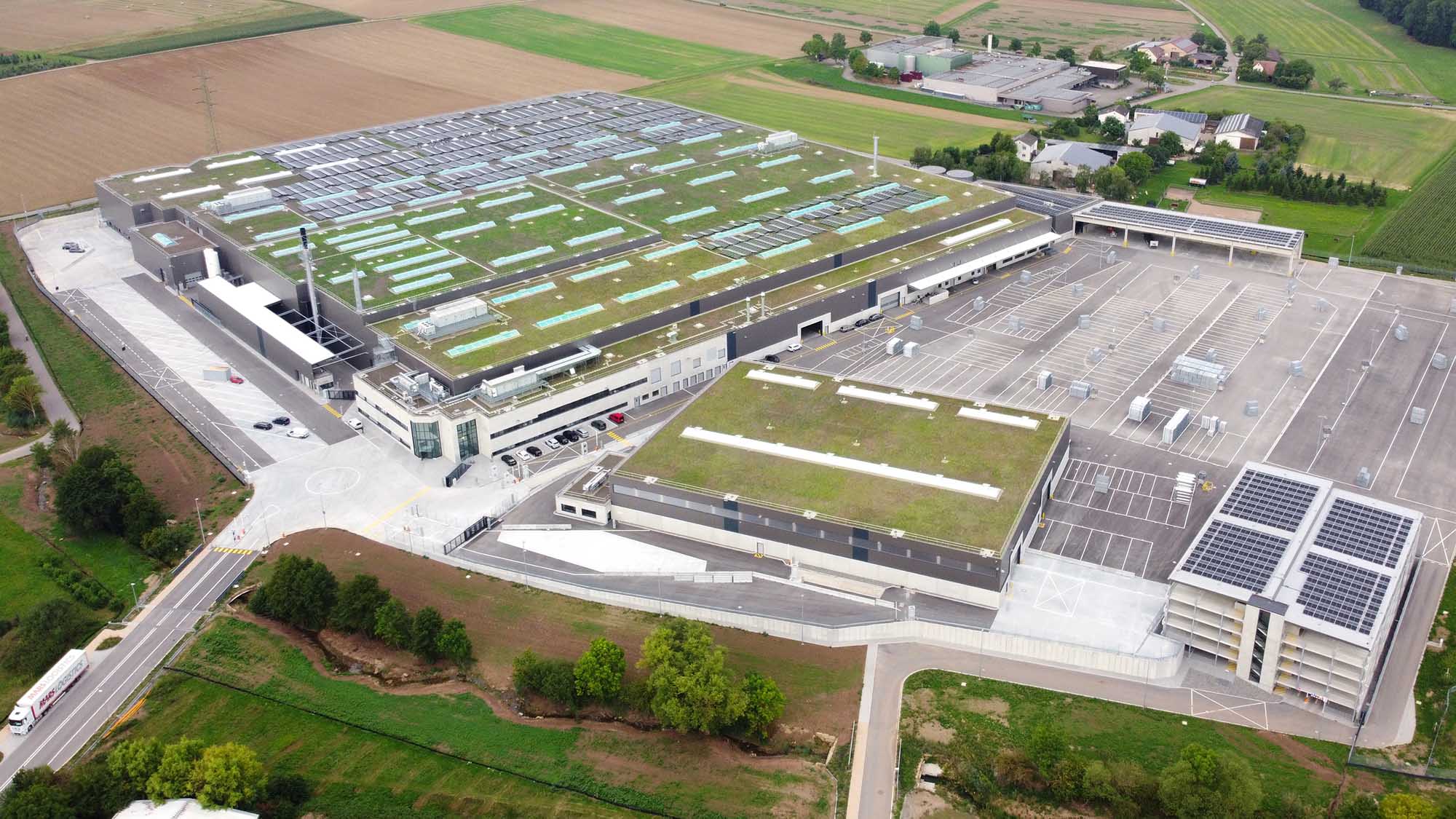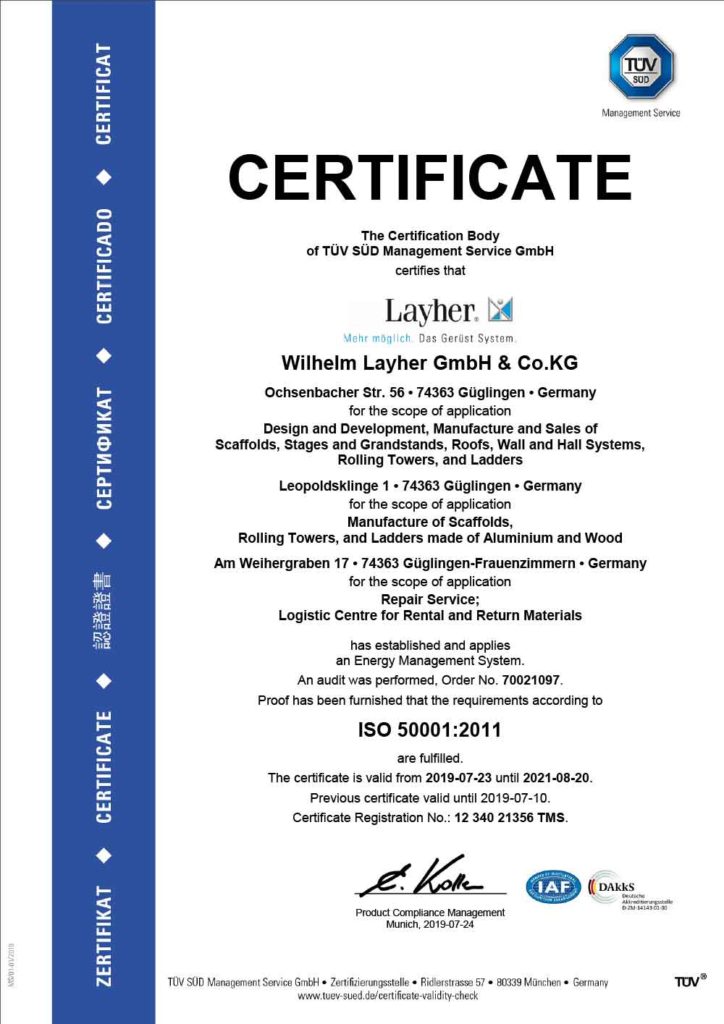-

-
Sustainability and environmental responsibility

-
- Increasing efficiency
- Reusable protect system
- Long-lasting products
- Reducing harmful CO₂
-
-
Economic and ecological sustainability
At Layher as a family-owned company, sustainable and responsible use of resources has always been an important principle. We focus on increasing energy efficiency and reducing harmful carbon dioxide emissions (CO₂). That is why we introduced company energy management more than ten years ago.
- In addition to environmental responsibility, many of our customers are receiving enquiries from their own customers about the environmental characteristics of the products they use – and when participating in public tenders, climate-friendly procurement is of primary concern.
For these reasons, Layher decided to voluntarily certify its energy management system under the international norm ISO 50001. Following an in-depth inspection by external auditors, the ISO 50001:2011 certificate was awarded.

ISO 50001 Energy Management System certificate -
-
Sustainability in processes
- Energy efficiency 10-year target – 10% less energy consumption per unit produced
- Site selection and production facilities – Short distances between the locations and a targeted division of production reduce CO₂ emissions
- The selection of raw materials and their procurement are also ecologically sustainable. Only suppliers who also have ISO certificates are specifically selected.
- New technologies and efficient production processes ensure resource-saving production and high production quality.
- Innovative heating systems, a combined heat and power plant and heat recovery from an air compressor ensure that the room temperature in various parts of the building is controlled over the long term.
- The standard for new buildings is energy efficiency class KfW 55.
-
-
Sustainability through action
- Targeted building renovations, such as regular roof renovations or replacing the roller shutters with faster, more innovative products, can prevent unnecessary heat loss.
- Diesel forklifts are being replaced by electric forklifts.
- Wood waste from the manufacture of the toe boards is used as an energy source in the drying chamber in the same manufacturing process.
- Photovoltaic systems and green spaces on all new building projects.
- Conscious paperless/paper-saving office and CO₂ neutral production of all print media and brochures.
-
-
Sustainability in products
- Newly purchased components can be combined and used with the existing stock of materials.
- Retaining value through the longevity of the products.
- By using high-strength types of steel, we have succeeded in significantly reducing the weight of the scaffolding parts. Up to 15% less transport weight, resulting more efficient transportation is possible, therefore reducing CO₂ emissions.
- The reusable Layher protection systems for enclosures and construction site protection.
-
-

-


